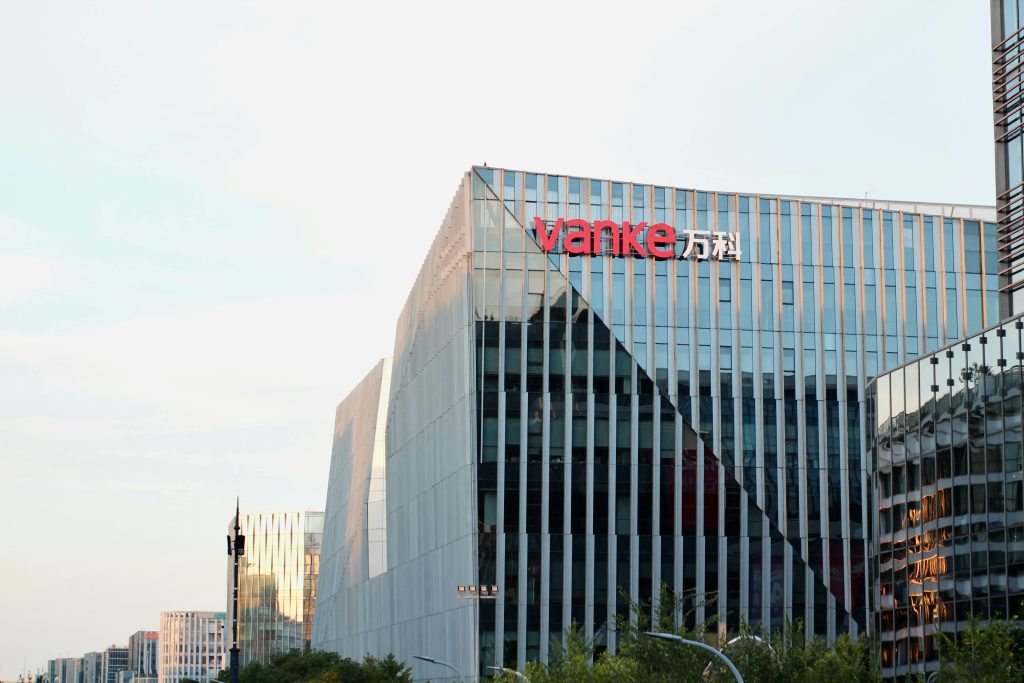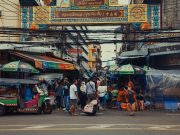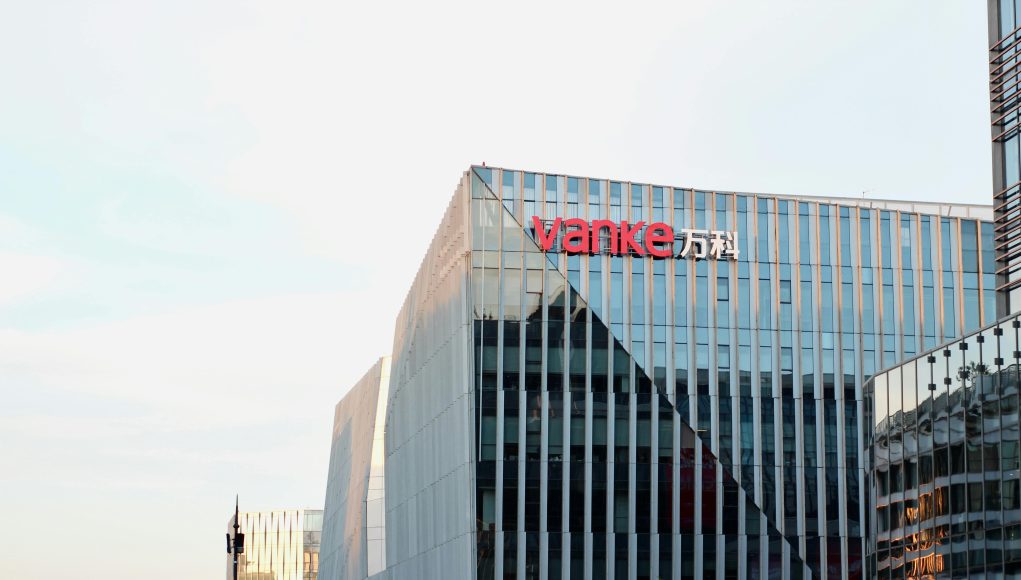
(Singapore, 26.11.2025)China’s troubled property sector has been thrust back into global focus after the bonds of China Vanke Co. — once the nation’s most trusted state-backed developer — tumbled sharply this week. The sell-off has renewed concerns about whether one of the country’s most important builders can avoid default as a wall of debt comes due over the next several months.
The latest market shock began when Vanke’s bonds recorded steep declines across both onshore and offshore markets. On Wednesday, one of its key local notes — a 566 million yuan (S$103.96 million) bond due in 2028 — slumped by about 19 yuan to 75 yuan, a fall severe enough to trigger a temporary trading halt. At the same time, the company’s 2027 dollar bond continued a dramatic slide, trading at around 40 cents on the dollar — the lowest level since January. The drop followed a record one-day fall of up to 14 cents the day before.
These bond movements have fueled doubts about Vanke’s ability to refinance or repay its upcoming obligations without stronger, clearer backing from the government. The company has long been viewed as a barometer of China’s broader real estate health, and its struggles suggest continued stress in an industry still grappling with years of declining sales, record defaults, and fading confidence.
For policymakers in Beijing, Vanke’s sudden deterioration presents an uncomfortable dilemma. Officials have been working to stabilize the housing market after a prolonged downturn, and have explored measures such as subsidizing mortgage interest costs to boost buying sentiment. But these efforts have so far brought only brief moments of improvement, with sales declining again since the second quarter of this year.
According to Bloomberg’s reporting, analysts warn that allowing Vanke to slip into default could seriously damage what little confidence remains in China’s property rescue efforts. Li Gen, founder of Beijing G Capital, told Bloomberg that a default at this stage “would weaken the effectiveness of government support policies” and might even speed up home-price declines. He also noted that such an event could raise fresh doubts about other state-owned developers that investors had long considered relatively secure.
Bloomberg also reported that several major international financial institutions already hold a pessimistic view of China’s housing market. UBS expects home prices to continue falling for at least another two years, while Fitch Ratings said last month that new-home sales by area may need to drop another 15% to 20% before the market can stabilize.
Authorities have also been tightening scrutiny of borrowers after years of debt-fueled expansion by developers. According to state media reports, financial regulators are closely examining disclosure failures related to bond defaults, especially in the real estate sector.
For Vanke, the pressure now centers on its fast-approaching debt deadlines. Bloomberg data shows the company has 13.4 billion yuan in onshore bonds that will mature or be subject to investor redemption options by the end of June next year. That amount far exceeds the remaining borrowing capacity Vanke has from its largest shareholder, Shenzhen Metro Group — the state-owned subway operator in Shenzhen that has already lent the developer around 30 billion yuan (S$5.51 billion) this year.
Those loans, which were crucial in helping Vanke avoid default earlier this year, are no longer guaranteed. Investor concerns intensified last month after the resignation of former chairman Xin Jie and signs that Shenzhen Metro may impose stricter conditions on future lending. As sentiment worsened, Vanke’s 2027 notes lost more than 40% in just one month.
Under the latest agreement, Vanke can receive up to 22 billion yuan in shareholder loans from Shenzhen Metro between the start of 2025 and the company’s next annual general meeting, expected no later than June 30. But after drawing most of that amount, the company has only a small portion left — not enough to comfortably cover its upcoming maturities.
Analysts say this narrow margin leaves Vanke increasingly dependent on external support to stay afloat. Zhang Dawei, chief analyst at Centaline Property, said Vanke has lost its ability to generate sufficient internal cash flow and is now “relying on external transfusions to keep operating.” While Shenzhen Metro may continue to provide some support, he noted that such aid can help the company survive, but not spark a meaningful recovery.
Financial pressures inside the company have become more apparent. Vanke reported a wider loss in the third quarter, reflecting continued weakness in sales and rising funding costs. Bloomberg Intelligence estimates the company’s contracted sales this year could fall more than 40% to about 138 billion yuan.
The next major tests will come in December, when two onshore notes reach maturity. A 2 billion yuan bond is due on December 15, followed by another 3.7 billion yuan bond on December 28. If Vanke proposes an extension for either bond, it will need approval from at least 90% of holders for each note — a threshold that may prove difficult to achieve in the current climate of uncertainty.
Vanke’s deepening troubles highlight the persistent fragility in China’s property market, even after years of targeted rescue measures. New-home sales in October continued to fall despite official attempts to ease financing conditions for buyers and developers. Market sentiment remains delicate, and the sharp movements in Vanke’s bonds underline how quickly confidence can evaporate.
As one of China’s once-strongest and most reputable builders, Vanke has long been seen as a key signal of policymakers’ willingness to support the sector. Now, with the company under severe pressure and billions in debt coming due, investors and analysts are watching closely to see whether additional government backing will emerge — and whether Vanke can avoid becoming the next major casualty in China’s prolonged property slowdown.





































